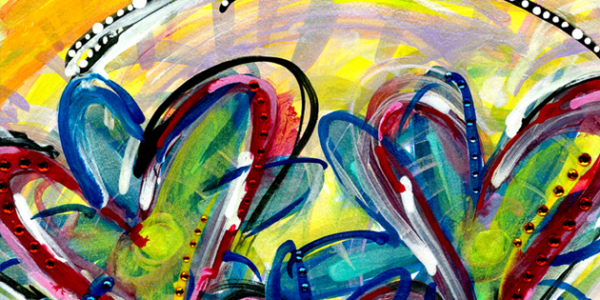The other day I was looking online for a visual image that would capture the idea of ‘sharing’ – meaning something being divided between two people.
Interestingly however, the majority of the images that came up were with people looking at their electronic devices. What?!
At first I didn’t understand why, until it dawned on me how the word ‘share’, has taken on another definition in our society.
If I were to ask a 40+ adult to ‘share’ something, they will either be inclined to tell me a story or give me half of their sandwich; whereas a younger person will likely think that means to share information virtually or to pass along a social media post.
Of course, this plays out with many other words now too, for example…
When I ask an older adult if they are ‘friends’ with someone, they will view that as a companion that they spend time with and support one another; whereas a younger person may think I’m asking about a connection they have on Facebook or LinkedIn .
Likewise, when I ask an older person to ‘follow’ me they will start repeating my movements or go where I go. Whereas a younger person will look me up on line and potentially ‘follow me’ on Instagram or Twitter.
Maybe a bit exaggerated – but there is truth in this, right?
The Divide Between The Younger and Older Generations
How often do adults feel that they just don’t understand the younger generation? Especially since they use words they aren’t familiar with and ‘talk too fast.’
How often do people in general misunderstand each other? They fail to communicate thoughts effectively or interpret the same story or words in a different way.
This is an inevitable part of life and evolution. Now because of technology however, this is happening more rapidly and readily than ever before. And it is impacting our ability to communicate, socialize and build a strong sense of community.
In the words of Rollo May, well known psychologist and author, “Communication leads to community, that is to understand, intimacy, and mutual valuing.”
This is ideal, but can be easier said than done. Especially in today’s society with our busy lives, overuse of technology, and stress.
Communication, More Complex Than We Think
Communicating is a complex cognitive function that requires various parts of the brain to interact simultaneously. The prefrontal cortex is especially important for fine tuning communication. Anyone with prefrontal damage or who simply can’t access that area due to chronic stress will struggle with more advanced communication skills and relating.
According to a decade of research studies by Uri Hassan, Professor at Princeton University, there are two primary neural mechanisms that enable communication to occur:
- SOUND: As one person transmits sound waves to another, the recipient’s brain begins to physically couple with the sound waves that are being sent to them. This is called neural entrainment between the speaker and listener.
- STORIES: Higher order cortical regions switch on and become entrained to ideas, memories and stories. Our brains have developed a common neural response that allows brain coupling between speaker and listener to not just transmit and receive sounds, but to efficiently share information.
Professor Hassan’s research shows that brain responses in the listeners’ brains while listening to a story were actually coupled with and similar to, the brain responses observed in the speaker’s brain while they were telling the story.
Communication Connects Us
The better the listener understood the speaker’s story, the stronger the similarity and coupling between the listener’s brain and the speaker’s brain.
Well, doesn’t this explain why it feels so good when someone understands what we are saying?!
Evidently good communication depends on speakers and listeners possessing common ground. A shared understanding of the same language will play an essential role in the process of transmitting our ideas, memories and stories to other brains.
As our society is becoming more technically advanced and ‘plugged in’ we are losing our footing on this ‘common ground’ front. We are spending more time on our devices, than relating in person.
Our lives literally revolve around our ability to share information and experiences.’ So communicating effectively is paramount to our personal and professional fulfillment and success, how can we improve this?
Here are some suggestions:
- Intentionally turn off electronic devices strategically throughout your day and go out of your way to have in-person dialogues with others such as neighbours, sales clerks, and people next to you in line ups.
- Carve our specific dates and times to communicate live with friends and family, in-person or by phone if distance is an issue. Don’t use video; instead practise relying on the sound waves and stories to create context and understanding.
- Explore various topics, share ideas and discover where you differ in opinion and experiences and where you can agree or relate.
Coupling our brain to other brains not only builds our social and communication skills and sense of community; it also defines who we are.
What better way to be defined?
To your Brain Coupling!
Jill

